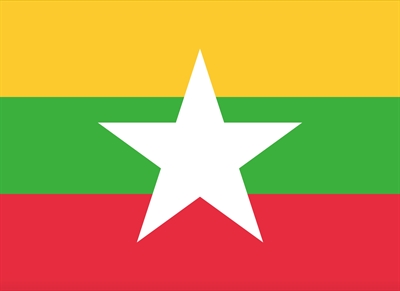Myanmar (Burma) - Human Rights Council - Death Penalty - July 2020
Country: Myanmar (Burma)
Issues: Death Penalty, Detention, Due Process and Fair Trial, International Advocacy, Torture
Mechanism: UN Universal Periodic Review
Report Type: Stakeholder Report
The Advocates for Human Rights, in collaboration with the World Coalition Against the Death Penalty and the Anti-Death Penalty Asia Network, submitted a stakeholder report for the 37th Session of the Working Group on the Universal Periodic Review. This report addresses Myanmar's compliance with its human rights obligations regarding the death penalty.
Myanmar has reportedly observed a de facto moratorium on executions since 1988, but the death penalty remains a legal form of punishment for crimes that fall under the 1950 Emergency Provisions Act. Crimes eligible for the death penalty include crimes resulting in death, offenses against the State, drug trafficking, (often vaguely defined) military crimes, and terrorism. The death penalty is mandatory in cases involving murder and certain drug-related offenses. People with psycho-social disabilities are exempt from the death penalty. As the government does not publish data about the number of death sentences issued, it is difficult for civil society organizations to report on the use of the death penalty in Myanmar. According to Amnesty International reports, approximately 16 people have been sentenced to death since 2015; however, local media report a much higher number.
Although the Constitution prohibits torture, the army and border police reportedly use torture to extract confessions. Although international access to military detention centers has been severely limited, conditions in these detention centers are harsh and sometimes life threatening due to overcrowding and inadequate sanitary conditions.
Because the judicial branch is effectively controlled by the executive branch, independence of the judiciary is often undermined. For instance, charges of treason and offenses under the Defense Services Act may be used to target political opponents and minorities. Many human rights defenders and journalists have faced reprisals. Often, those detained are not granted access to counsel, and when lawyers are assigned to a case, they have limited time to prepare a defense.
The authors of the report recommend that Myanmar abolish the death penalty, ratify relevant human rights treaties, and engage with international human rights mechanisms.




